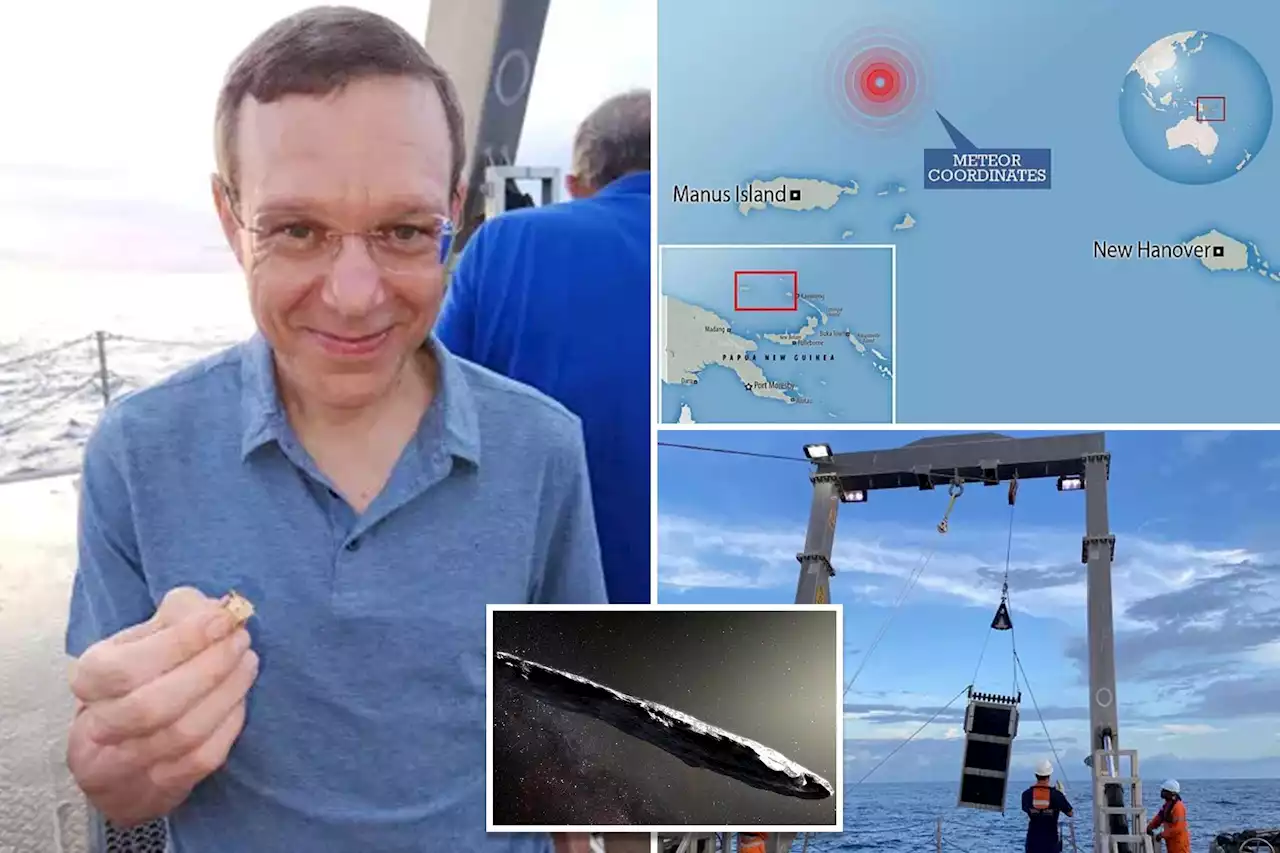A Harvard University professor just concluded a two-week project dredging the Pacific Ocean in search of the remains of the first confirmed interstellar object to fall to Earth
A Harvard University physics professor just concluded a two-week project dredging the depths of the Pacific Ocean in search of the remains of the first confirmed interstellar object to fall to Earth — an object he hypothesized could be a form of extraterrestrial technology.
The team collected the spherules by dragging a large magnetic sled across the ocean floor off the coast of Papa New Guinea.“As molten droplets from a fireball, they carry information about the elemental and isotopic composition of the first recognized interstellar meteor,” Leob wrote on Tuesday in a his ongoingLeob and his crew were in search of the remains of CNEOS 2014-01-08, a meteor that fell to Earth in 2014 and was picked up by United States government sensors and logged by NASA.
When Leob published a paper suggesting there was a 99.999% chance the object was interstellar, the US Space Command and the Department of Defense agreed with the findings and it was renamed IM1. The designation meant the arrival of IM1 predated ʻOumuamua — previously considered the first observed interstellar object to enter the solar system — by three years.
With the help of the US military, Leob and his team determined where IM1 likely fell to an area less than a square mile. The team then travelled to the location off Papa New Guinea on June 14 and began dragging their magnetic deep sea sled repeatedly across the ocean floor. “The spherules were found primarily along the most likely path of IM1 and not in control regions far from it,” Leob wrote on his blog. “In the coming weeks we will analyze their elemental and isotopic composition and report our data in a paper submitted to a peer-reviewed journal.”
Canada Latest News, Canada Headlines
Similar News:You can also read news stories similar to this one that we have collected from other news sources.
Harvard Business Review - The LatestFind new ideas and classic advice on strategy, innovation and leadership, for global leaders from the world's best business and management experts.
Read more »
 There's a gravity 'hole' in the Indian Ocean and now we may know whyEarth appears to have less mass beneath a certain part of the Indian Ocean compared with the rest of the planet. Plumes of magma at the location could explain why
There's a gravity 'hole' in the Indian Ocean and now we may know whyEarth appears to have less mass beneath a certain part of the Indian Ocean compared with the rest of the planet. Plumes of magma at the location could explain why
Read more »
'Insanely Warm' Arctic Ocean Waters Are Delaying Freeze-Up and Pouring Heat Into the Atmosphere🔄FROM THE ARCHIVE: In late October, sea ice off Siberia has only now begun to start freezing — an unprecedented situation for that part of the Arctic.
Read more »
